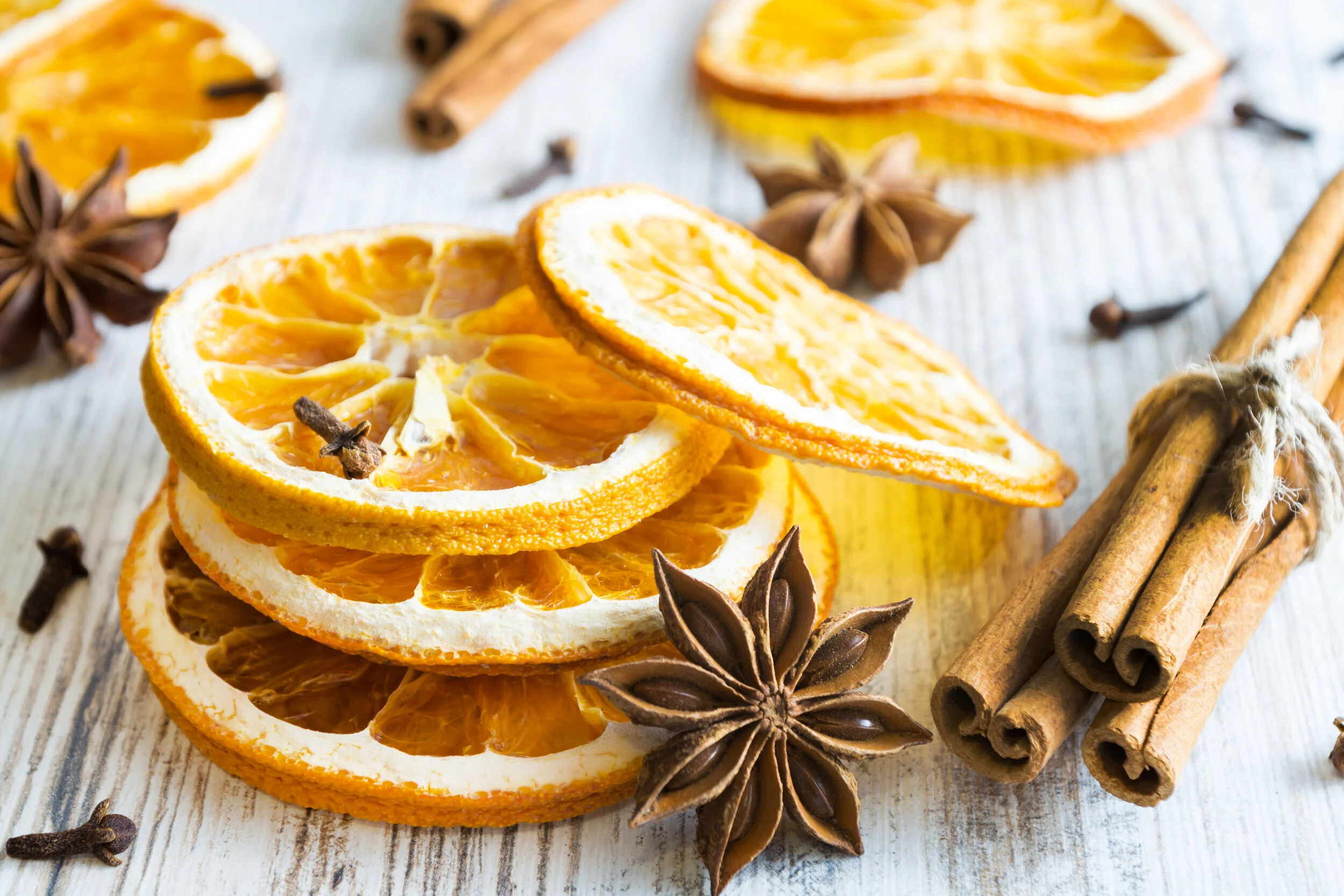Christmas vinegar
I make Christmas herb vinegar around the same time I make our Christmas fruit cake. We will consume the vinegar ourselves and we also give some away as Christmas presents.
Cinnamon, Star Anise, Cardamom and Cloves are all rich in essential oils which have anti-microbial qualities that inhibit unhelpful microbes in various ways. These constituents are, to varying degrees, extracted by the vinegar. Of course the orange contains vitamin C and the peel and rind contain many antioxidants that find their way into the vinegar. The cranberries contain a complex mixture of anthocyanins that are antioxidant, anti-inflammatory and antimicrobial. Plus, this vinegar tastes AMAZING!
When we consume this vinegar, we are consuming all those plant constituents and the live microbes contained in the apple cider vinegar, which itself, has been consumed by humans for health since 5000BC.
Our Christmas vinegar is a bit special. We do not guzzle it daily (vinegar-based drinks if consumed too frequently can damage your tooth enamel). We could use it medicinally, as we do the Four Thieves Vinegar and our Vital Tonic, but we tend to use this more in various dressings and vinaigrettes over Christmas (and in cocktails too).
For this herbal vinegar, unlike the others, I largely use dried herbs, but you can tell by the vibrancy of their scent whether they have been sensitively dried and stored and have, therefore, retained their potency. Don’t use herbs that don’t smell of anything before you start.
Try it for yourself? You can, of course, just buy your apple cider vinegar and skip straight to phase 2 of the recipe if you wish.
Phase one – apple scrap vinegar
Ingredients
4 apples
1 litre of water
Ideally filtered4 tbsp of sugar
Some prefer to use the equivalent of local raw honeyA small amount of raw apple cider vinegar
Equipment
1.5 litre Kilner jar
Washed in hot water or that has been through the dishwasherA large jug or mixing bowl
A clean cloth and elastic band
A mixing spoon
Method
Simply put the water into the mixing bowl or jug and stir in the sugar (or honey if you have chosen to use that) until dissolved.
Chop up the apples into smallish chunks (I leave skins on and throw everything in – core and pips too) and put into the kilner jar – it should be ¾ full.
Pour over the sugar/honey water.
Close the lid to exclude oxygen and leave for around 2 weeks. I always label my ferments – saying what it is and when it was made. I also write on the date I next need to do something with it, so that I don’t forget.
After two weeks or so, strain the fluid from the apple and you will likely have an alcoholic cider. Put this cider into a clean kilner.
Add a small slosh of a previous batch of apple cider vinegar or some shop-bought raw, unpasteurised apple cider vinegar. This is not crucial, but it helps the process along by introducing the acetobacter bacteria you desire. I sometimes use kombucha vinegar or water kefir vinegar to do this if I have some of that about instead.
Cover, this time just with a cloth and elastic band, allowing air to the mix for this phase (acetobacter work in the presence of oxygen). And make a note on your label to check again in around 4-8 weeks.
I stop the ferment process when I am happy with its taste – I like it tangy and bright – which can take 12 weeks from apple removal in my house. If you are really lucky, a beautiful vinegar scoby will have formed and you can transfer this onto your next batch of vinegar.
This method produces apple scrap vinegar as a base for your Christmas vinegar. Apple scrap vinegar is slightly different to apple cider vinegar but for small batches, apple scrap vinegar works well!
Phase two – Christmas vinegar
Ingredients
1 litre of the delicious apple scrap vinegar you just made (or the apple cider vinegar you just bought)
One orange, sliced or you can just use grated orange peel and zest, in which case I will use 2 or 3 oranges
Cranberries I use frozen ones if I can get them but, failing that, dried
Cardamom seeds crushed ever so slightly. depending how much you like cardamom!
Cinnamon sticks 1 or 2 dried sticks (whole)
Cloves I only use maybe 4 cloves.
Cinnamon
1 or two dried sticks (whole)Star Anise 2-3 star anise pods
Honey If you fancy to, you can add 100ml of honey. The effect is delicious.
Equipment
1.5 litre kilner jar
Sieve
Method
Chop the above and place in the clean kilner jar. Cover with the apple scrap vinegar, shut the lid and leave at room temperature for a month. Don’t forget to label it and date it. Note the ingredients on the label too, so you remember for next time. I also add the date on which I next need to do something with it.
Ideally, you would give it a shake daily, but I often forget this. Just do it when you remember.
When the month is up, strain off the liquid using a fine-mesh sieve. I also use a small press to press all the herbs. so that I extract as much of the juices as humanly possible from the herbs. Then bottle your Christmas vinegar in an airtight bottle and label it.
I have not given you specific measurements of each herb. Ideally, you would use approximately equal amounts of each and ensure that your vinegar is thick with submerged herbs by the end of the process. You will get to know how much this is by eye.

